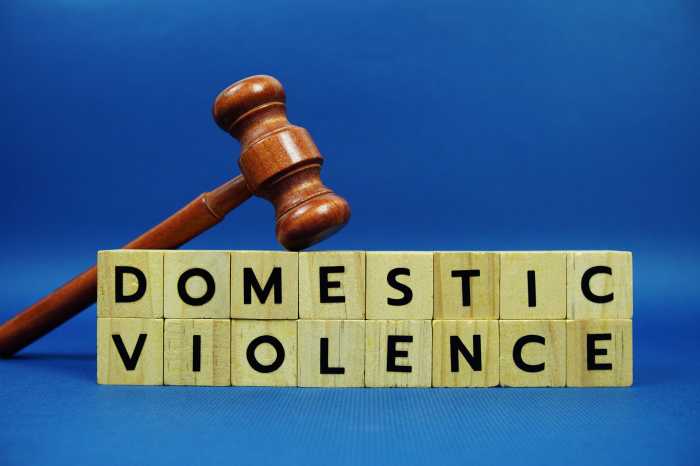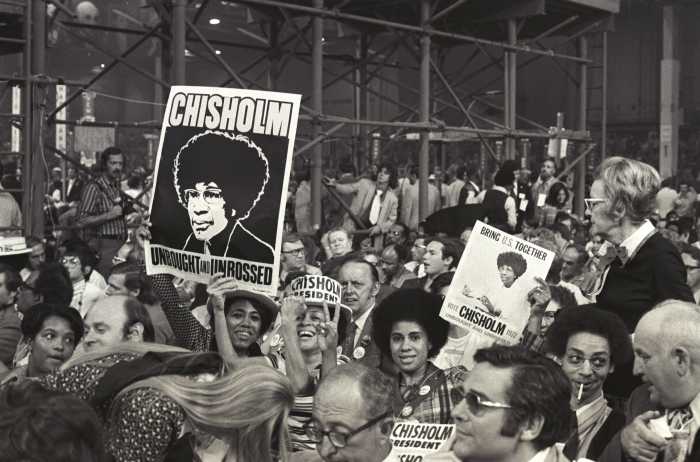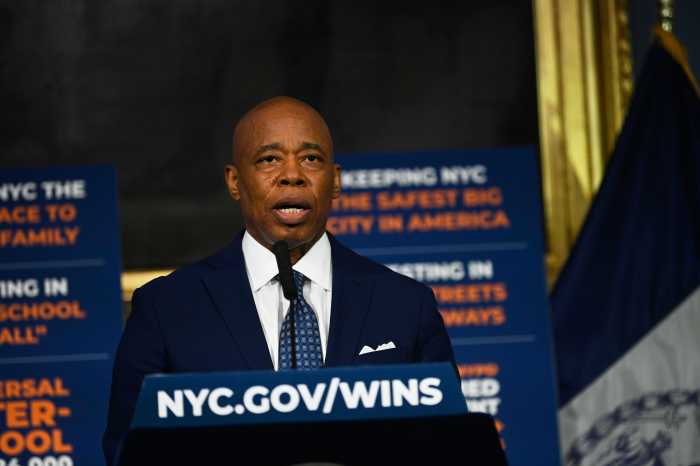As a small property owner who has lived in the Brooklyn neighborhood of Crown Heights most of my life, I’ve witnessed the evolution of my community’s housing landscape. From the overt racism of the past to the gentrification battles of today, the complexity of housing in New York is not just a policy debate for me – it’s personal.
That’s why I feel compelled to voice my serious concerns about the so-called “Good Cause Eviction” proposal, which is deeply flawed legislation that threatens the very fabric of our communities and the livelihoods of countless small property owners like me.
My journey to property ownership started with a dream from my parents, who immigrated to Brooklyn from Jamaica in the 1960s. My father arrived with just $50 in his pocket, but he utilized his carpentry skills to find work, raise a family, and live out his young family’s American dream. They even named me after Abraham Lincoln.
Like many immigrant families in my community and similar neighborhoods, property ownership was always viewed as a path to stability and a bulwark against the twin forces of discrimination by individuals and institutional bias. Home and building ownership was – and still is – an opportunity to secure a sustainable future for our family and serve as anchors of our community’s character and heritage. My parents saved up every penny they could and eventually purchased a 118-year-old 14-unit property in Crown Heights, which I maintain today and which supports my wife and three-year-old son.
But Good Cause Eviction threatens to undo all of that for my family and so many families of color with stories similar to ours. The country of origin may be different, but – let me be clear – what we have in common is that we’re not white.
Proponents of this misnamed bill argue that it protects tenants from unjust evictions and arbitrary rent hikes. But the devil is in the details, as it always is. The bill fails to consider the realities and lived experiences of small property owners. By capping rent increases without accounting for always rising costs of property maintenance, taxes, and insurance, and by mandating lease renewals, this legislation places an undue burden on those who are providing affordable housing in our neighborhoods.
Let’s consider the broader picture: over 80% of eviction filings in New York City are due to non-payment of rent. Good Cause Eviction offers no solution to this vital data point while still wreaking havoc on the statewide affordable housing economy overwhelmingly supported by smaller owners like me.
Instead, it introduces new complexities that could discourage property maintenance and investment in housing stock. The irony is that while it seeks to protect tenants, it would lead to a decline in the quality and availability of affordable housing.
For small property owners, the economic calculus is straightforward but often ignored in policy discussions. We rely on rental income to maintain and improve our properties, pay rising property taxes, and cover rising insurance costs. These are not abstract numbers; they are real expenses that affect the viability of providing affordable housing. When operational costs rise but income is artificially capped, the mathematics of sustainability simply does not add up.
This is something I am intimately familiar with. During the eviction moratorium, nearly half of my tenants stopped paying rent. But the expenses on my 118-year-old building did not stop rising.
Fast forward another two years, and still many of my tenants were still not paying rent. The combination of the routine repairs and equipment replacements, my $60,000 property tax bill, and rising insurance costs has been ruinous.
But despite the challenges small property owners like me endure, we’re routinely ignored or met with hostility and contempt from lawmakers, particularly from members of the Democratic Socialists of America (DSA).
After I shared my experiences with the lead sponsor of Good Cause Eviction, a DSA member, she took to X (formerly Twitter) to accuse me of “inflicting suffering” on tenants who live in my “janky building.” Another DSA State Senator from Brooklyn mockingly asked me, “have you considered spending less time tweeting and more time repairing your run down units?” That same Senator dismissed criticism of Good Cause Eviction as a mental illness and told me and other members of Small Property Owners of New York that their ultimate goal was to abolish private property.
While disturbing, their views are consistent with a resolution adopted by the DSA in August 2023, which calls for “the defeat of landlordism and, ultimately, the abolition of private property.” The housing crisis, they write, “requires us to work toward the goals of the decommodification of housing.” This is the toxicity they’ve infected policy discussions with.
It’s baffling that individuals who hold these beliefs are in a position to legislate on housing issues while they simultaneously declare that their intention is to make it so economically unfeasible for someone like me to maintain my property that I just give up.
As a Black property owner, the implications of Good Cause Eviction resonate with me on a deeper level. Our community has historically faced barriers in acquiring and maintaining property. For many of us, our buildings are not just assets; they are legacies and symbols of resilience against systemic injustices. This bill threatens to undermine these hard-earned gains by making it economically unfeasible to sustain property ownership.
Once an owner like me can no longer financially sustain their property due to intentional policy decisions, large corporations will fill the void because they can afford to operate on smaller margins or forgo rental income for years at a time.
Creating more housing is crucial. But along with building more housing, there are tenant protections lawmakers can pass that are supported by small property owners like me, like providing targeted support to tenants in financial distress by funding the Housing Access Voucher Program.
Proposals to address the housing shortage should not lie in policies that harm small property owners, have cascading harmful statewide implications, and exacerbate the problem but rather in comprehensive, balanced approaches that consider tenants and property owners.
The first step toward crafting responsible policy is to ensure that everyone at the table wants to solve the problem – instead of working to advance an ideological agenda based on wrecking the livelihoods of small property owners. New Yorkers deserve better.
Lincoln Eccles is a rental property owner in Crown Heights, Brooklyn, and a Board Member of Small Property Owners of New York (SPONY)
Read more: Body discovered on burning boat in Brooklyn; police investigate.







































